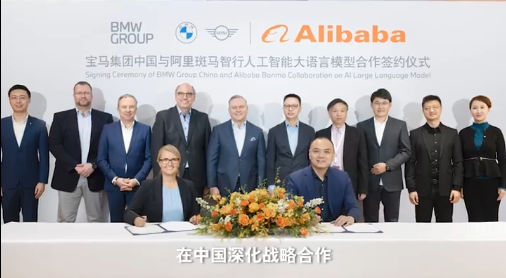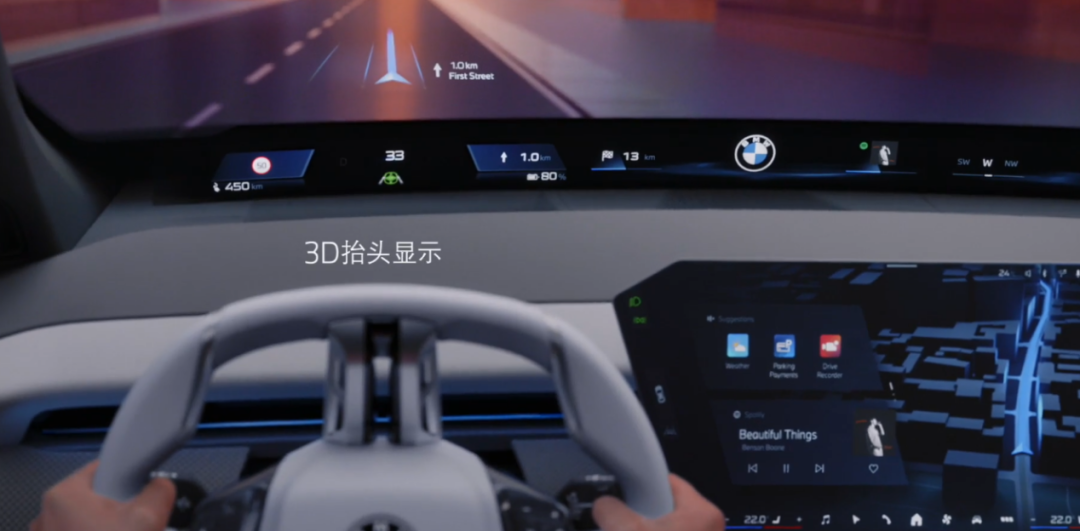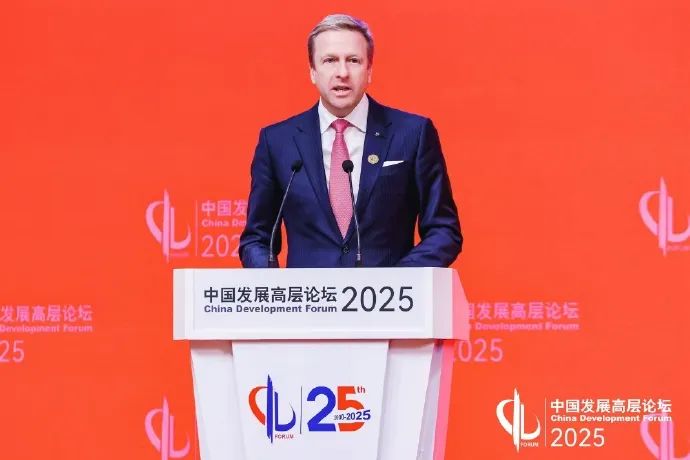BMW Leverages Four Major Tech Enterprises to Forge Ahead in Intelligence Innovation
![]() 05/14 2025
05/14 2025
![]() 690
690
Lead
BMW is facing stiff competition from emerging forces. Its long-standing dominance in the automotive industry has been challenged by the surge of new energy vehicles, and its established century-old framework makes rapid transformation difficult. Now entering an adjustment phase, BMW aims to secure a strong position in the intelligence sector by adopting China's rapid strategic transformation pace and leveraging China's technological prowess to build new competitive barriers.
Produced by | Heyan Yueche Studio
Written by | Chen Dejun
Edited by | He Zi
Full text: 2511 words
Reading time: 4 minutes
Autonomous brands like NIO, Wenjie, and Lixiang have emerged strongly, continually eroding market share from foreign brands, causing multinational giants like BMW Group to face increasingly intense business challenges.
Recently, BMW Group released its first-quarter performance report for 2025. While the company's global sales continued to grow in the first quarter, sales in its largest single market, China, declined by 17.2% year-on-year, with deliveries falling to 155,200 units. Financial data revealed that BMW Group's revenue in the first quarter decreased by 7.8% year-on-year to €33.758 billion, and its net profit dropped by 26.4% year-on-year to €2.173 billion. The sluggish performance in the Chinese market has emerged as a critical factor dragging down its overall profitability.
Currently, German automakers like BMW are in a critical period of new energy transformation, with their product line still dominated by fuel vehicles, which directly results in reduced market competitiveness. Facing this pressure, BMW is accelerating its transition towards electrification and intelligence, with its recent actions becoming somewhat frequent.
BMW recently announced plans to integrate the DeepSeek large model into models such as the BMW 5 Series long-wheelbase version equipped with the ninth-generation iDrive system, the pure electric i5, and the new X3 long-wheelbase version starting from the third quarter of 2025.
BMW has been eager to forge strategic partnerships with multiple leading Chinese intelligence enterprises. In just over a month, it has established connections with Alibaba, Huawei, DeepSeek, and Huoshan (a subsidiary of ByteDance).
Despite its slow progress in electrification, BMW intends to catch up in the realm of artificial intelligence.

△BMW and Ali signing ceremony
What sparks will BMW and AI ignite together?
This series of smooth operations has brought China's AI dream team into BMW's circle of friends. So, with the support of AI, what form will BMW vehicles take?
"Tonight, take a drive along the Bund and help me find a restaurant with a river view." When the car owner speaks to the in-car system in a dialect, the system can not only quickly comprehend but also provide route planning tailored to preferences based on the habits of the car owner and their family, combined with real-time traffic conditions. This scenario is anticipated to appear on the BMW 5 Series in the third quarter.
The dialogue between AI and humans is not a mechanical question-and-answer session but rather an understanding ability that infinitely approaches human thinking. Like a friend, it continuously actively updates historical dialogue data and continually refines the personality preference portrait. This makes the "answer" more suitable for individual circumstances, realizing a response style that caters to different individuals.

△BMW UltraSense Smart Cockpit Concept Diagram, including Smart Steering Wheel, Head-Up Display, and other configurations
The four intelligent giants will also empower BMW in their respective areas of expertise.
BMW and Alibaba have established a secure foundation and jointly released customized AI avatars, "Car Genius" and "Travel Companion." BMW and Huawei have launched digital services including digital keys, HUAWEI HiCar, and the MyBMW App, developed diversified intelligent applications and functions based on HarmonyOS NEXT, and created a full-scenario intelligent ecological experience. BMW plans to integrate the DeepSeek large model to enhance the vehicle system's understanding of human and individual thinking. BMW and Huoshan's new marketing model will more efficiently provide customers with matching products and precise guidance, thereby optimizing the car purchasing process and experience.
While the entire industry is focusing on smart cockpits, BMW is taking a broader view, encompassing the entire industry chain. By unveiling a 360-degree full-chain AI strategy, BMW applies artificial intelligence to various links such as research and development, production, sales, and services, which signifies higher efficiency and greater precision.
Big data and machine learning can assist human engineers in design and testing because in data analysis, machines have computational advantages over humans. They excel at simulating various scenarios, reducing the number of physical experiments, improving efficiency, and lowering costs, which is particularly beneficial for dangerous scenarios such as collisions.
The production line becomes more automated and flexible, production efficiency improves qualitatively, quality becomes more controllable, the response speed to problems increases, and labor costs decrease.
In the sales and service links, customers will have more autonomy in their experience, and big data will assist in matching vehicle models. To a certain extent, this avoids service discrepancies caused by differences in the level of human staff, filters out subjective biases, and even malicious guidance and deception. This shortens the path between production and sales links, improves efficiency, and reduces troubles.
BMW's Two Strategic Fulcrums
BMW's strategy rests on two fulcrums: intelligence and Chinese localization.
Gao Xiang, President and CEO of BMW Group Greater China, stated, "As the central task of the AI strategy at this stage, BMW will continue to innovate on the basis of the new-generation technology cluster, continuously improving and enriching the full-scenario intelligent experience for Chinese users."
The changes in the automotive industry over the past decade have been rapid, with three transformations occurring in succession. The first is the transformation of energy, from fuel to electric power; the second is the transformation of drivers, from L0 to L5, marking the shift from human drivers to vehicle systems; the third is the transformation of automotive functions, from transportation tools to intelligent robots. The latter two stages are closely tied to AI.
BMW stumbled during the energy transformation stage, unable to match the agility of smaller enterprises. As the market share of fuel vehicles was captured by new energy vehicles, BMW's market share subsequently declined. Though it has lost its status in the fuel era, its hundred-year heritage remains.
When the era of intelligence dawned, BMW adopted a more aggressive approach. The collaboration with Huawei, Alibaba, DeepSeek, and Huoshan represents a significant leap, and the planned rollout of AI-based products will be a natural progression. Additionally, BMW has long maintained close cooperation with CATL and has made breakthroughs in large cylindrical battery technology.
Focusing on cooperation with Chinese enterprises is a clear strategy for BMW China. Only by strengthening cooperation with Chinese enterprises can BMW better understand China. As Oliver Zipse, Chairman of the Board of Directors of BMW Group, said, "In China, for China, innovating at the speed of China to create smarter, more humane, and more responsible future mobility."

△Oliver Zipse, Chairman of the Board of Directors of BMW Group
BMW has good reason to heavily invest in the Chinese market. China is the world's largest new energy vehicle market, and for BMW, it contributes the largest sales globally. Simultaneously, China's activity in intelligence has significantly empowered the automotive industry.
Theoretically, the integration of DeepSeek helps enhance safety. DeepSeek uses knowledge distillation technology to compress the large cloud model into a lightweight model for the vehicle, significantly reducing computational demand. In other words, under the same hardware conditions, the new large model can process more information. This improves understanding ability in complex scenarios, response ability in unexpected situations, strengthens the fusion of visual, radar, language, and environmental data, and enhances recognition accuracy and decision-making logic for rare scenarios such as temporary construction and balloons in front of the vehicle. However, this does not signify a substantial breakthrough in driving levels. Technological upgrades require a process, and the most important aspect at present is making drivers understand safety. The addition of AI may provide drivers with more prominent reminders. BMW has always advocated that intelligence is not about replacing drivers but making driving more enjoyable. For car owners who choose the BMW brand, the warning that "humans are the drivers and responsible for safety" is ingrained from the car purchasing stage.
The automotive industry is fiercely competitive, and one step slow or wrong can result in being left out of the game. BMW's strategy is both leading and pragmatic among joint venture brands. It timely sets aside its status as a leader and joins forces with the dream team to further bolster its competitive advantage through mutual support.
When the CEO of Nokia tearfully said, "We didn't do anything wrong, but we don't know why we lost," everyone remembered the harsh reality of the smartphone era. Classic brands must either transform or face the "Nokia" countdown. Today, BMW is writing an Eastern story about "an elephant turning around." With the assistance of Chinese technology companies like Alibaba, Huawei, DeepSeek, and Huoshan, BMW can only embrace a brighter future by successfully transforming in the most competitive Chinese market.
(This article is originally created by "Heyan Yueche" and cannot be reproduced without authorization)







